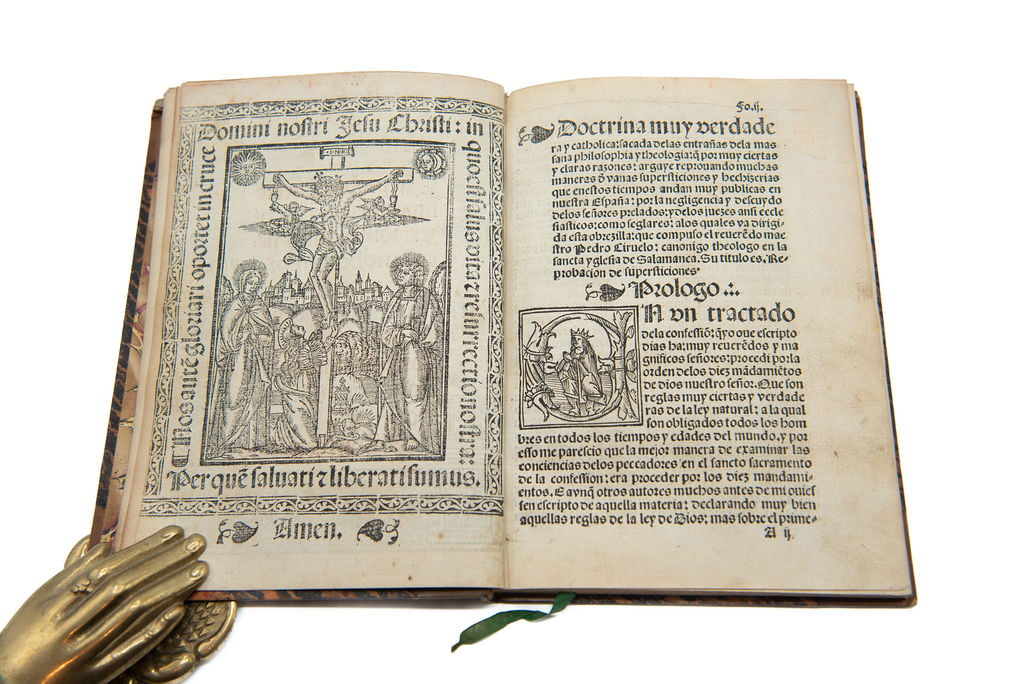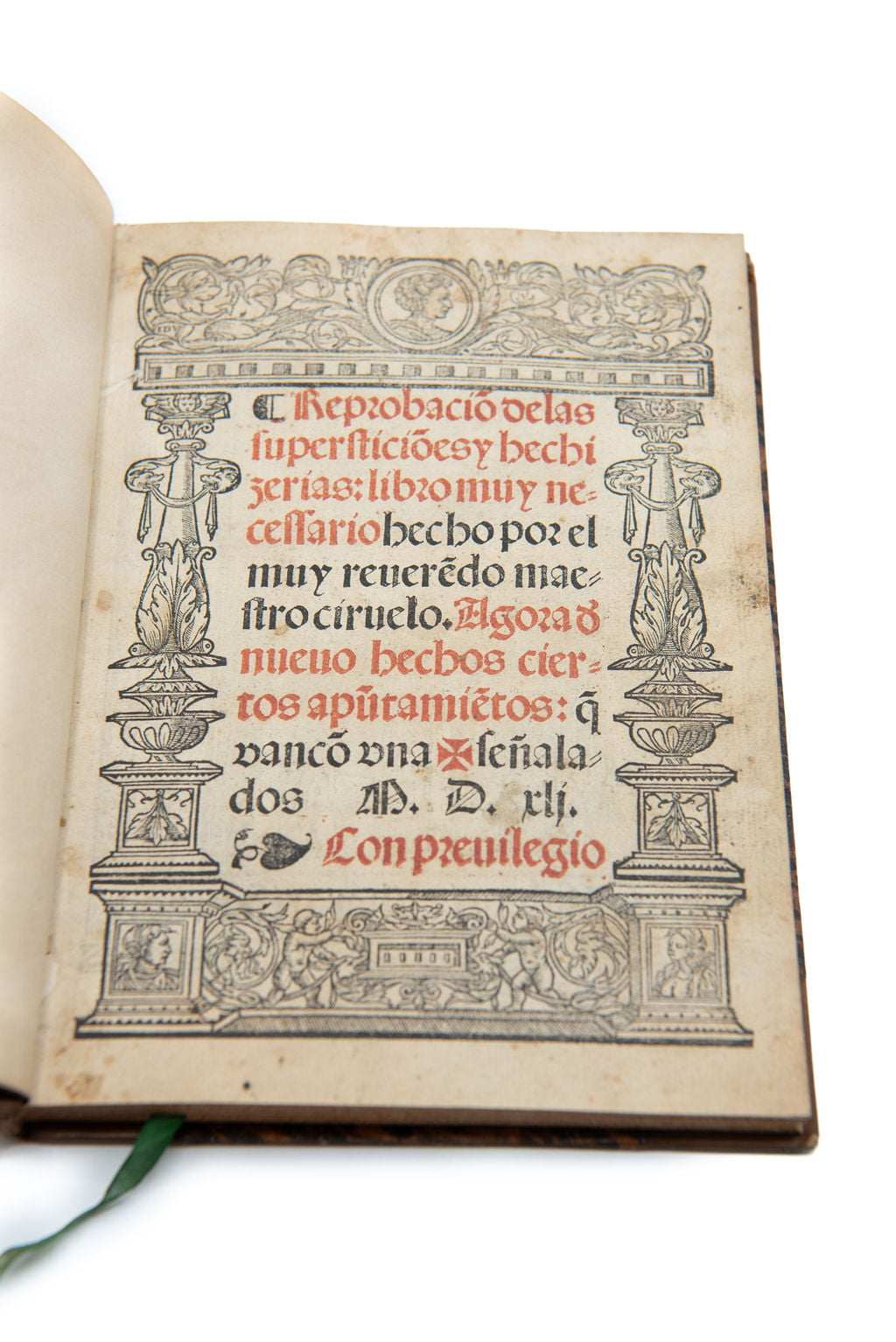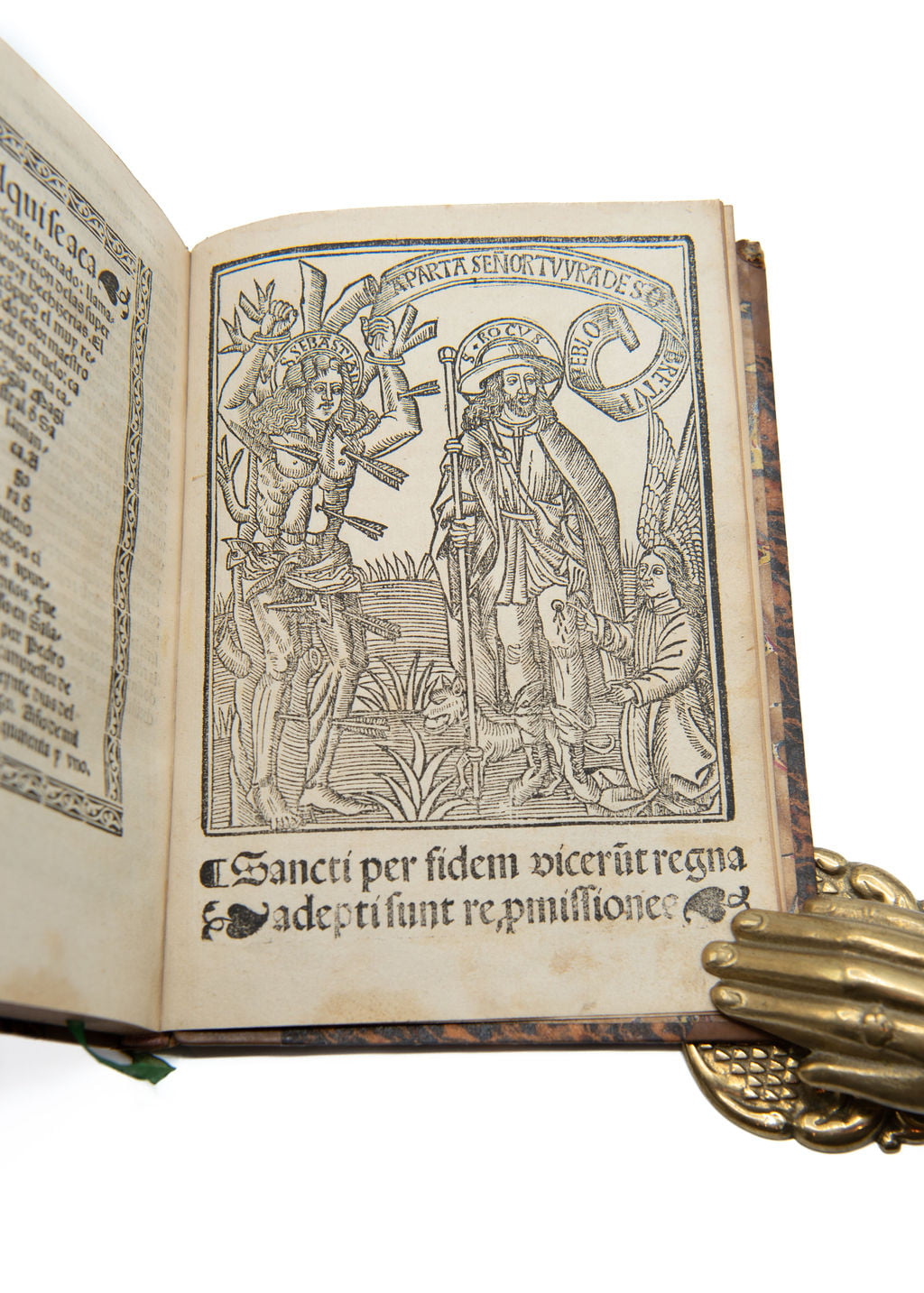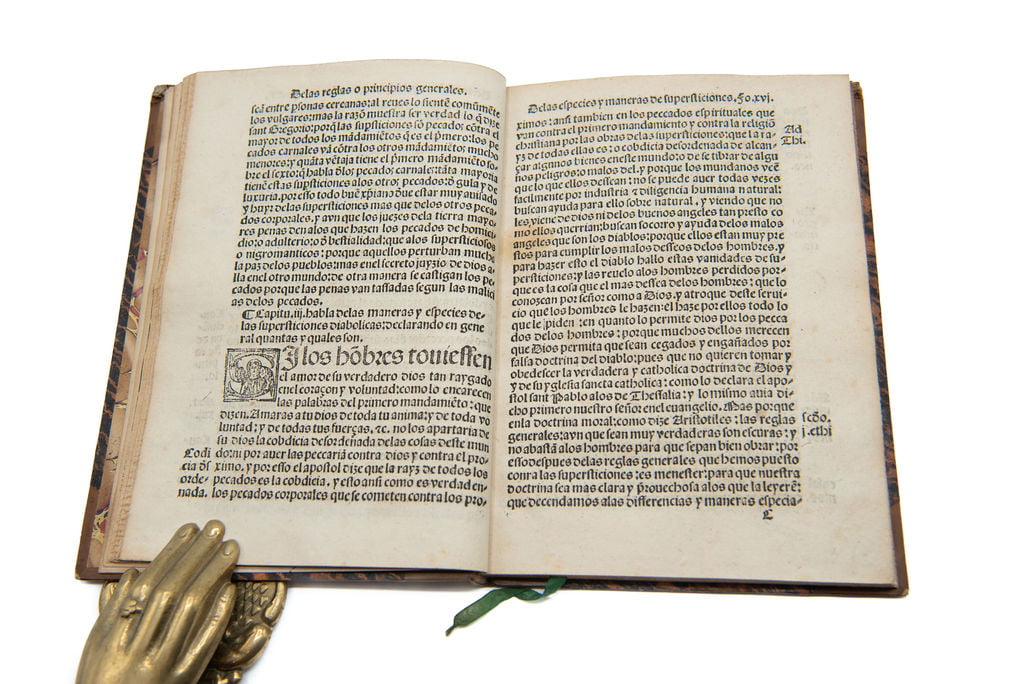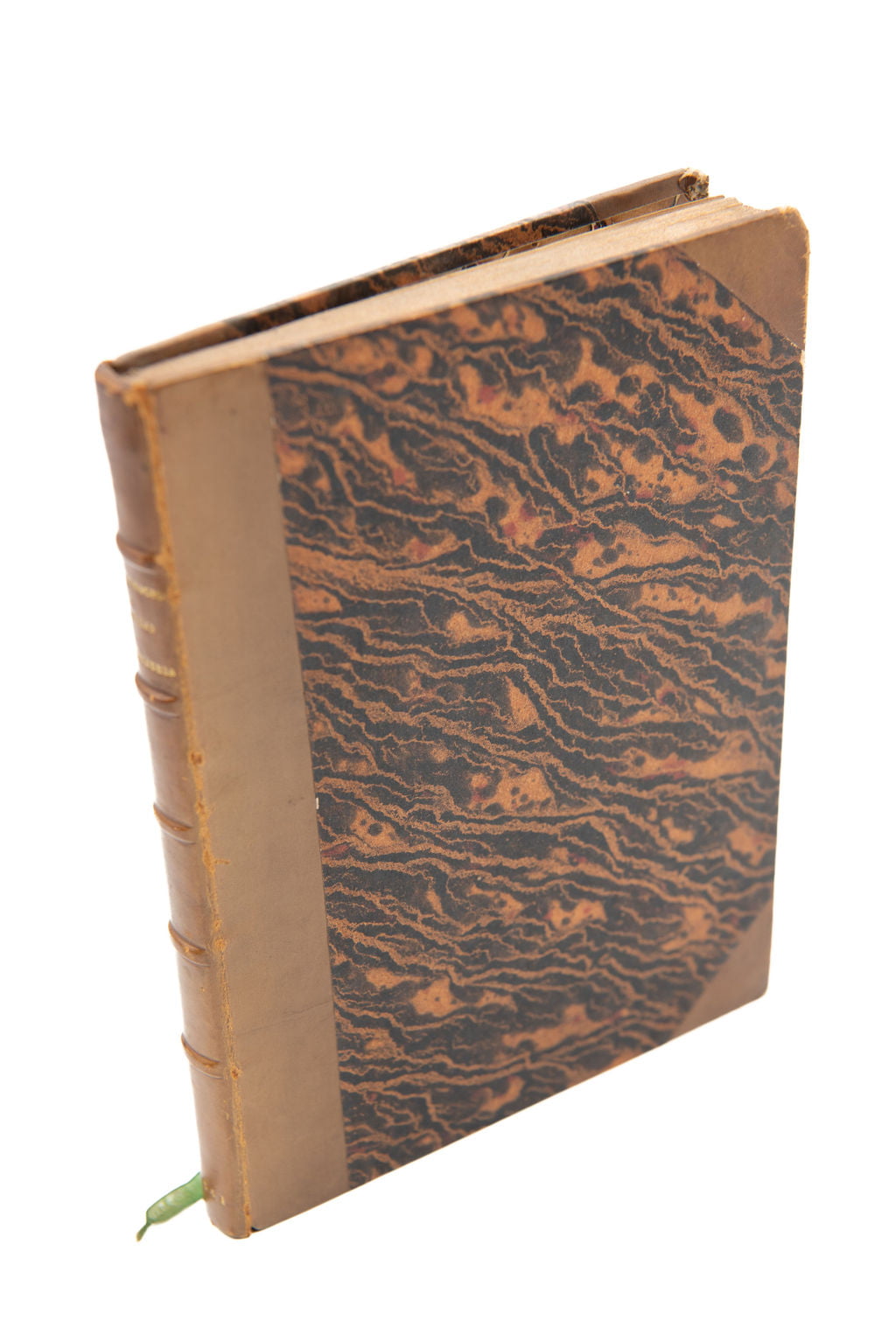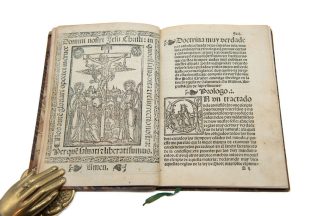CIRUELO, Pedro.
TWO COPIES RECORDED IN USA
Reprobación de supersticiones y hechicerías
Salamanca, Pedro de Castro, 1541£4,750.00
4to, ff. 88. Gothic letter, woodcut floriated and historiated initials, typographical ornaments. T-p in red and black within charming architectural border with putti, foliage and heads. Two full page woodcuts, colophon printed in an hourglass shape within ornamental border. Light age yellowing, blank margins of t-p and last very slightly soiled, light fingersoiling intermittently to margins, light ink smudges to 3 pp, mostly marginal, light waterstain to four early ll. Rare contemporary ms. marginalia in Spanish. A good copy in modern half- calf, marbled boards, spine with raised bands, green silk bookmark.
A very good copy of this fascinating bestseller treatise in defence of ‘true astrology’, against all forms of magical superstition, by the Spanish Pedro Ciruelo. First published in 1537, it was reprinted several times during the 16th century and widely disseminated in Spain. At the time, works on similar topics were commonly composed in Latin: this treatise, written in vernacular to reach a wider audience, is one of the few known examples in Spanish and the most famous of the early 16th century.
A mathematician, astrologer and theologian, Pedro Sánchez Ciruelo (c. 1470-1548) was born in Daroca (Aragon). After obtaining his Master of Arts at the University of Salamanca, he moved to Paris in 1492, where he alternated the teaching of Mathematics with the study of theology. Most of his scholarly production is concerned with creating a corpus of astrological knowledge not in conflict with Christian doctrine: he presented himself as a valid authority on the subject by virtue of his training as a theologian combined with his knowledge of mathematics and astronomy. ‘Reprobation of superstitions and witchcraft’ is Ciruelo’s most famous work, defined in the title as a “book necessary for all good Christians”. Often mistakenly described as a manual of witchcraft, it is instead aimed to discredit magical practices from a theological and moral point of view. The author encourages proper Catholics and teaches the ‘ignorant’, who are attracted by the fascination of supernatural powers, to avoid superstition and sorcery.
Ciruelo discusses all kinds of superstitions known and practiced in his time and talks about people who seek to obtain benefits through illicit means. Interestingly, however, he does not blame them, as the culprit indicated is always the devil. The first book briefly presents the concepts of superstition and witchcraft, while the second is dedicated to condemning all forms of divination, including necromancy, predictive astrology, augury, palmistry, and dream interpretation. In particular, Ciruelo explains the difference between ‘true’ and ‘false’ astrology’: the first, licit from the point of view of the Church, is based on the natural effects of the stars on air and water, which can affect weather and human health; the second, which tries to predicts human activities that are related to men’s free will and chance, is instead diabolic and superstitious. In the third book on sorcery, the author attacks the use of spoken or written curses, charms and superstitious prayers, denouncing the activities of unofficial healers. He states: “Las palabras no tienen virtud natural”, that is, ‘words have no natural powers’.
A remarkable edition, beautifully printed and embellished with two charming illustrations. The first, on verso of title page, portrays the scene of the crucifixion and it is surrounded by the text of the antiphon ‘Nos autem gloriari’ (Galatians 6,14), within a decorative border. The second, on the last page, depicts St. Sebastian holding a ribbon banner with the phrase ‘aparta Señor tu ira de sobre tu pueblo’ and St. Roch with a guardian angel; below, the antiphon ‘Sancti per fidem vicerunt regna’ (Hebrew 11,33).
In stock


